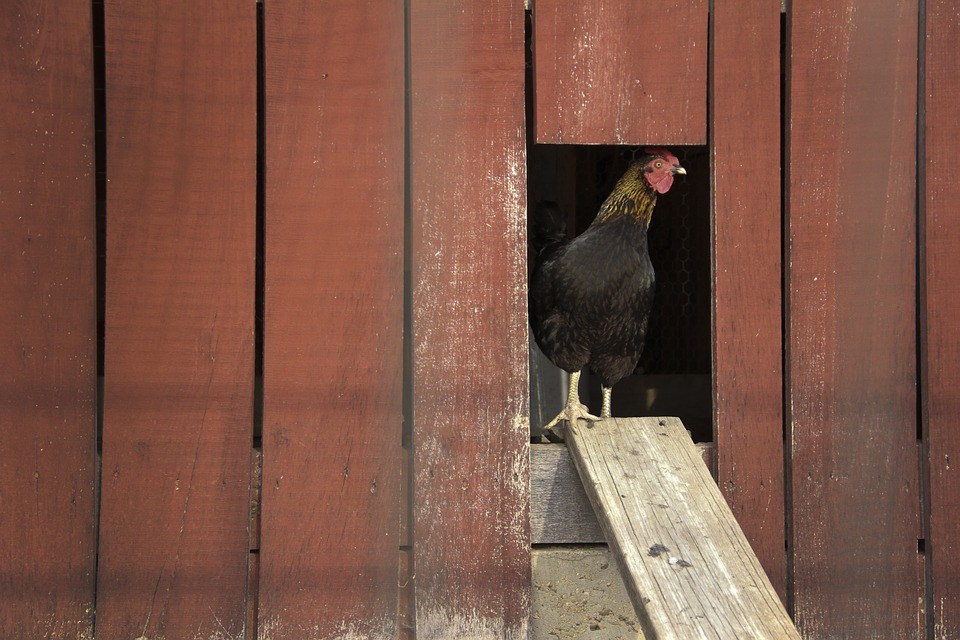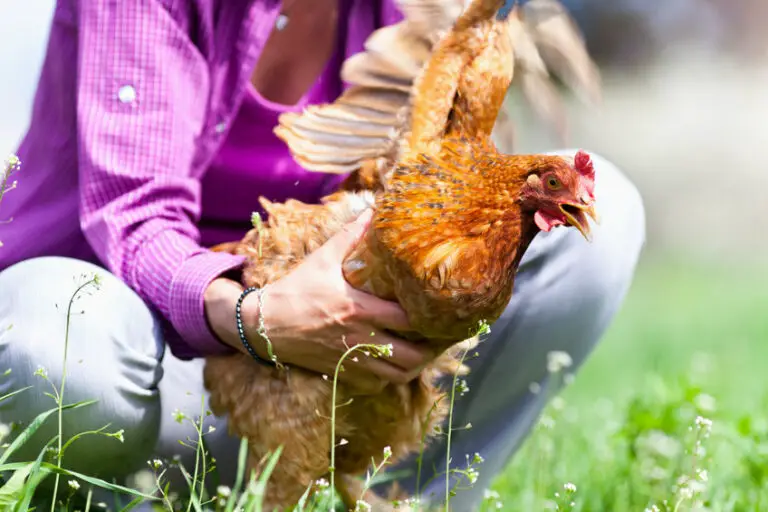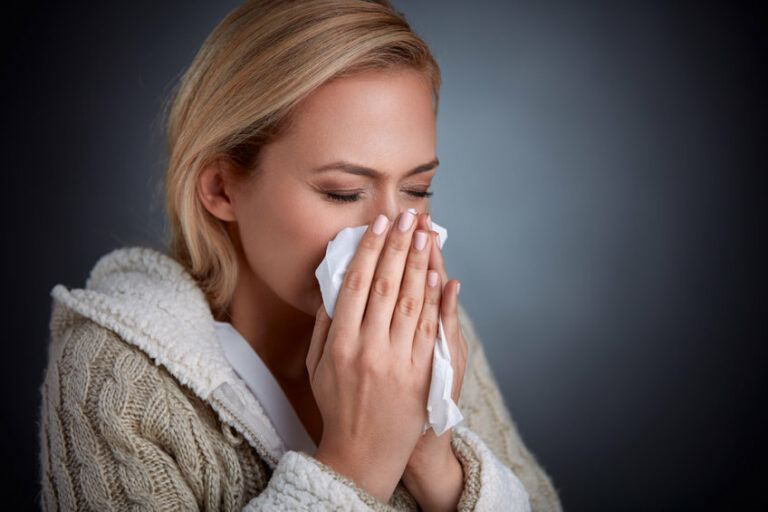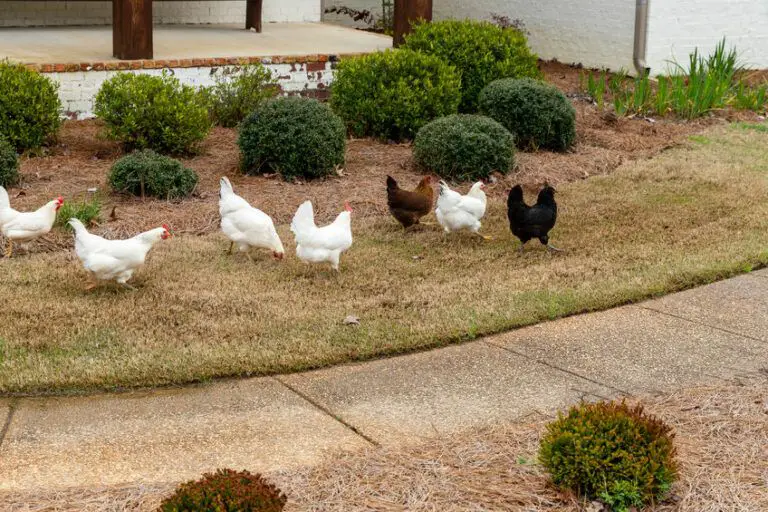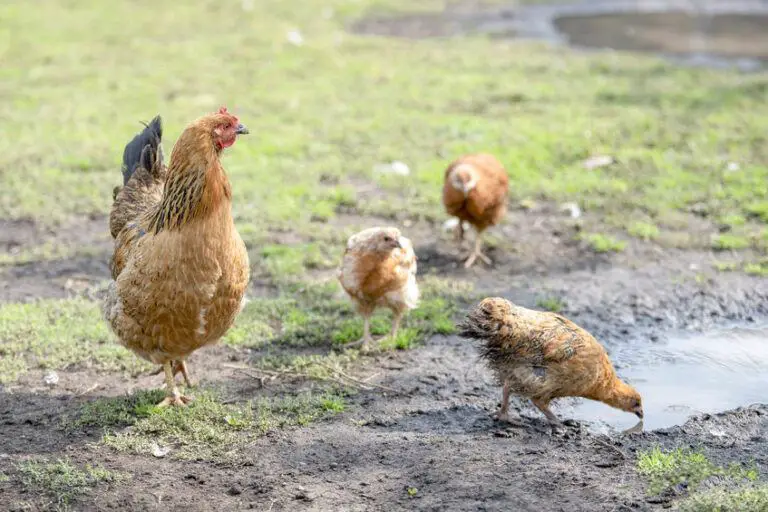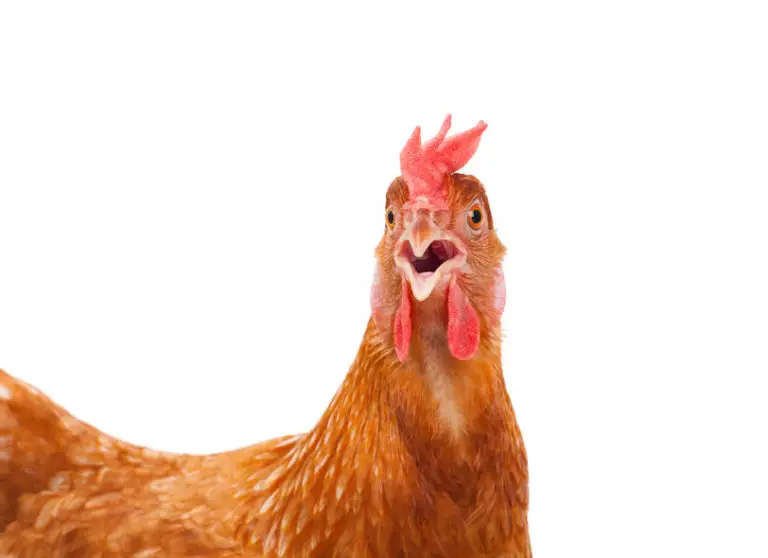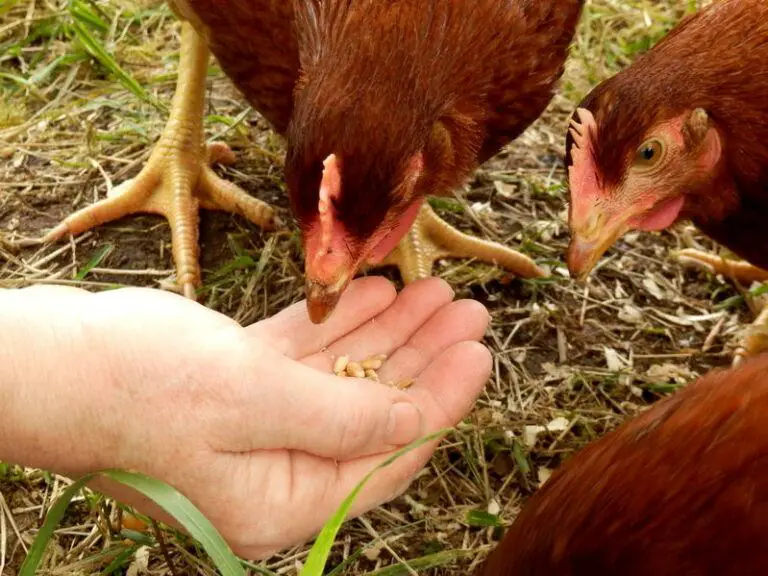Do Chickens Need Heat In The Winter?
Winter time can be super fun. Sledding, skiing, playing in the snow, or whatever other winter activities you love to do. However, when those temperatures drop below 30, or 20, or below 0, it can be a bit harder to stay outside for any length of time.
Well how does the cold damp winter conditions affect your chickens? Do chickens need heat in the winter? I mean if it’s cold to us, shouldn’t we get them a nice heater and some warm water? Well you may or may not be surprised to know that you should be more concerned about your chickens in HOT weather, than cold weather or even freezing cold temperatures.
Chickens fare well in cold weather as long as they have enough food and fresh water that is not iced over. In this article, we’ll take a look at a few of the ways you can help your chickens in the winter, including how to winterize your chicken coop.
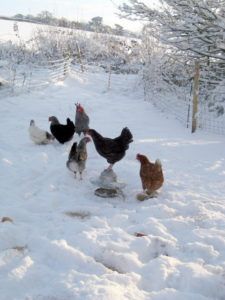
Do Chickens Need A Heater In Cold Weather?
Chickens generally do well in the winter without a lot of coddling by their owners. The soft side of me wants to look at my flock like they need the same comforts of home that I enjoy…but they don’t! If you provide them with water that is not iced over, feed, and a dry well-ventilated coop to roost in at night, they will be happy as can be.
Personally, I don’t see the harm in using a heat bulb similar to the ones used for raising chicks as these are far less prone to starting on fire than a heater of some type. And the extra light in the coop should help maintain egg production.
Although some people like to use heaters in their coops, I would not recommend it as there is a chance for a fire from the chickens flying on it, dusting getting into it etc. Not only that – the chickens don’t need the extra heat.
Having said that, it’s a good idea to prepare your coop for winter by doing a few things to winterize your coop in preparation for the cold weather. Damp, wet conditions are not good for your chickens as they can get sick. Neither are drafts…and just know that draft in the coop is not the same thing as ventilation…we’ll take a look at that as well. Read on!
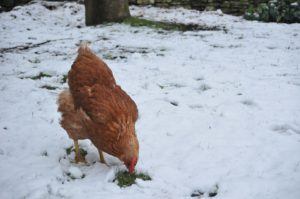
(Photo by Geoff Beattie, Pixabay)
How To Winterize Your Chicken Coop
Below are a few guidelines of what will work to keep your flock happy and healthy in your coop this winter.
Ensure your coop is well ventilated but not drafty
Many people understandably think they need to really seal up their coop at night so their chickens don’t get cold, especially in those cold Midwest or Northeastern US winters (or Canada…or whatever cold climate you may live in). Unfortunately, a coop sealed up tightly with inadequate ventilation can cause sickness or death from Ammonia build up.
For information on chicken illness symptoms, read more here.
As stated earlier, chickens do not do well in a damp environment so free air flow in the coop helps to get rid of the damp, moist winter air. However, where the air comes in from makes a difference. Chickens can do well even in very cold temperatures but don’t tolerate damp conditions well.
If you have a coop that leaks air where the chickens are roosting, it can be bad for them. However, if you have vents or a window above roost level (near the roof), that is good as the air is not blowing directly on them and the moist air is flowing upward and out of the vents, away from the birds, and not accumulating in the coop.
Some chicken farmers suggest placing the water in the run or somewhere outside the coop to further eliminate moisture build up. But with proper ventilation this may not be necessary.
It’s not a bad idea to have plenty of bedding in your coop like straw or wood pellets etc. to insulate the coop from below. However, it’s not good to start a deep litter system in the winter as the usual breakdown process does not occur correctly. Clean, dry bedding is the key, however. And combined with proper ventilation, your birds should fare well in your coop this winter.
Provide Clean Water, Free Of Ice
We all know that clean water is good for the overall health of your chickens. But just make sure it’s not frozen! If it is, they aren’t getting water. Period. It won’t take long for this to negatively affect their health. Water helps them regulate their physical well being and is helpful for consistent egg production.
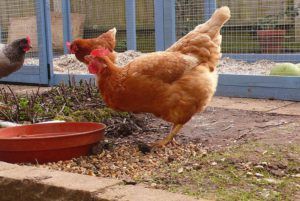
We own a homemade 5 gallon waterer for our chickens. We place it outside of our coop because not only does it help free up more space in our coop, it also helps with reducing moisture levels in the coop. But when it gets cold enough to ice over, we put an electric deicer in the bucket which works great.
We have to run an extension cord from the garage to the waterer to plug in the deicer, but it’s worth it and doesn’t use a lot of electricity. There are many varieties of heated poultry drinkers, or deicers for your current waterer available at your local farm store or online.
Should A Heat Lamp Be Used For Heat or Light?
This is another common question chicken farmers have when raising chickens in the winter. And the answer is…it depends. I’ll explain.
As we’ve discussed, chickens don’t need an additional source of heat in the coop. They just need a dry, moisture free environment. But what if you keep your water source in the coop and the temperature drops so low that the water begins freezing? It seems logical that a heat bulb could be used to keep the water from freezing.
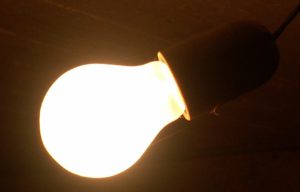
However, some chicken farmers state they do not want to subject their birds to too great a temperature variance from the inside to the outside as it can kill them. I’ve not seen this happen to our flock of chickens when we used a set up like that, but it’s something to keep in mind.
We no longer keep our water source in the coop and are not as focused on increased egg production in the winter so it’s a moot point in our current situation. But we wanted our readers to know this information, just in case. It’d be awful to see one of your chickens perish for something so preventable!
If there is a way to keep water outside the coop, it’ll eliminate a lot of these issues altogether…food for thought.
Plenty Of Chicken Feed, But Not Too Many Extras
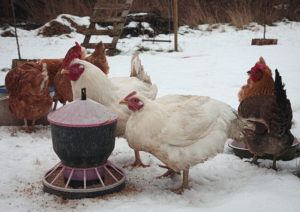
Any additional feed, or excessive scratch grains, or extra veggies etc. can interfere with that balance.
We used to feed our birds some scratch grains as they really loved it, but we did notice egg production dropped so we switched back to feeding only the chicken feed we buy at our local feed store. A chicken feed with 16% or higher protein level seems to work great!
However, we still break down and feed them our table veggie scraps, which they share with our cows and sheep:)
Check The Condition Of Your Coop
Unlike our own houses, our chicken coops may not get as much attention or maintenance as it should…I know I’m guilty of not attending to ours at times.
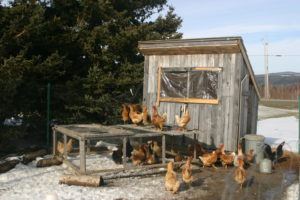
But before winter sets in it’s a good idea to look for ways to prevent draft or moisture build-up by doing the following:
- Check for roof leaks, broken shingles etc., and repair as needed.
- Seal up along the seams, around the windows if the caulking is coming loose.
- Add a vent or two at the roof line, or simply cut a few 1 inch holes along the top so moist/damp air can escape.
- Some people like to insulate their coop but there is a possibility of moisture/ammonia build up. If you live in extreme cold conditions and want to insulate, add venting at the top of the coop.
- Make sure there is adequate bedding in the coop, and that it is dry.
Closing Thoughts
We hope you feel adequately prepared for keeping your chickens happy and healthy this winter. Luckily chickens are rather hardy and do well if we simply provide the basics of food, water, and shelter. That’s what we love about raising them – very low maintenance!
Please leave a comment or question below on anything discussed here. We’d love to hear from you! Thanks for visiting.

